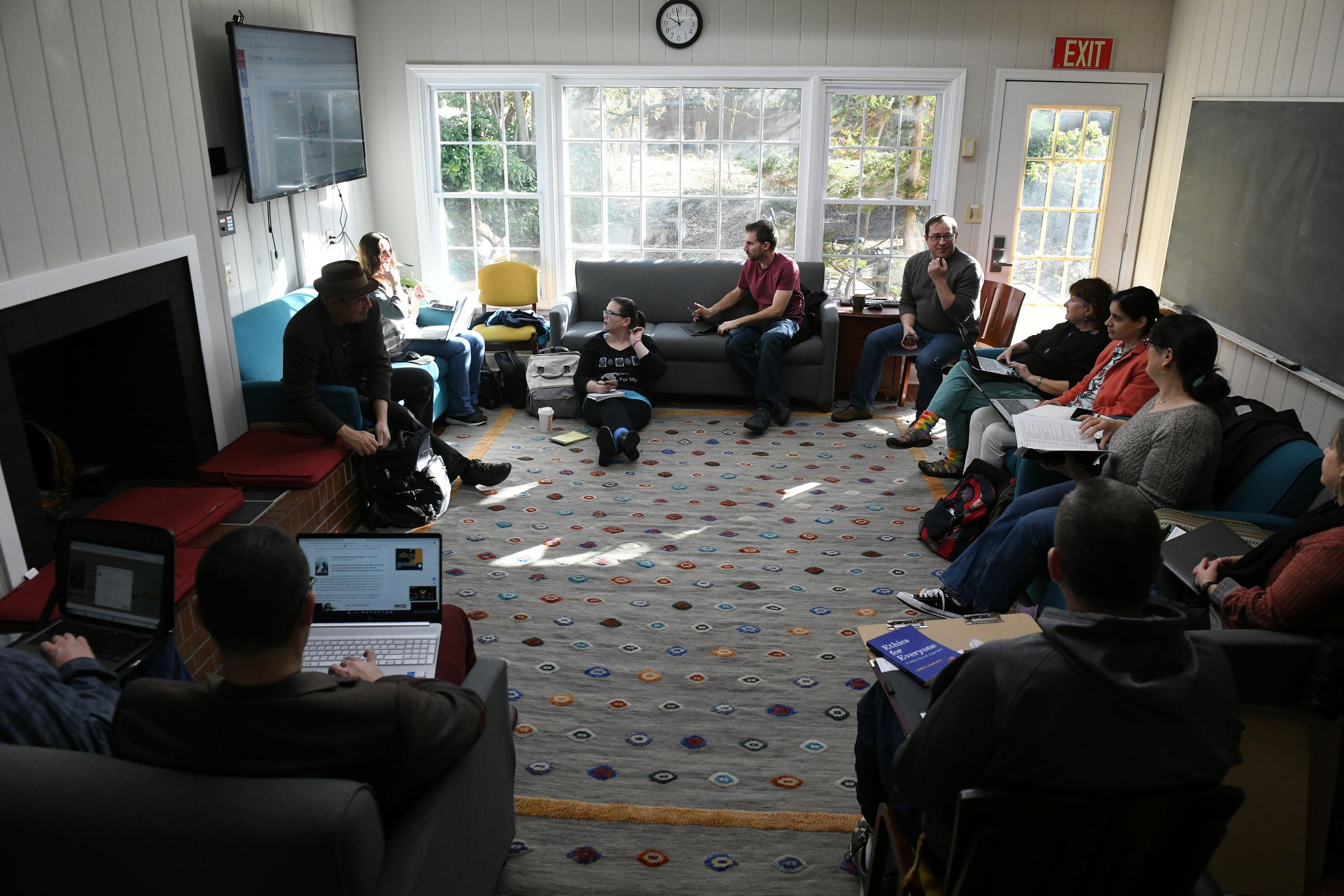
Develop Resources
The REACH Team is available to do drop-in teaching sessions in your class. We have a wide range of case studies, drawn from our listening sessions, which are available for classroom use (Case Studies Available Through the REACH Initiative (PDF)). To schedule a session in your classroom, email us at REACH@salisbury.edu.
Join our next Ethics Across the Curriculum Workshop!
This workshop gathers faculty from across the university to discuss ethics education, the role of ethics in their disciplines, ethical reasoning and dialogue, and the application of ethics in teaching and scholarship, as well as theoretical and structural concerns that arise in thinking through ethical problems. The workshop focuses specifically on implementing new approaches to ethics in your teaching: new approaches to course content and ethics-based activities, developing our own skills in ethical reasoning and exploring new models for ethics discussion, as well as exploring how to write and adapt case studies and design ethics assessments. To attend our next workshop, please reach out to us at REACH@salisbury.edu.
The Inaugural Cohort of Ethics Across the Curriculum Workshop Graduates, January 2023
What faculty are saying about our approach:
I recently attended the REACH workshop and, as a biologist with little to no formal training in ethics, I found the experience invaluable in helping me to feel more comfortable explicitly framing classroom discussions around ethical decision making. I'm looking forward to using one of the community-based REACH cases in ethics in my senior seminar classroom this semester as these case studies are well-written and provide an excellent bridge for discussing community and ethical considerations as they occur in a variety of scenarios. I think that the fact that the case studies are from our local community will also lead to greater student engagement and a more meaningful discussion, especially as part of our senior seminar focuses on helping our students make the transition engaged citizens and community members.
These REACH cases are so well constructed. They raise important ethical questions with obvious and immediate real-world relatability. They are simple enough to read quickly – and brief – yet reward careful thought and consideration. For an instructor of an Environmental Studies course, they provide an easy on-ramp for building instruction in thinking about applied ethics in my course, and I’m looking forward to seeing how this module impacts discussions throughout the semester in my senior seminar course.
